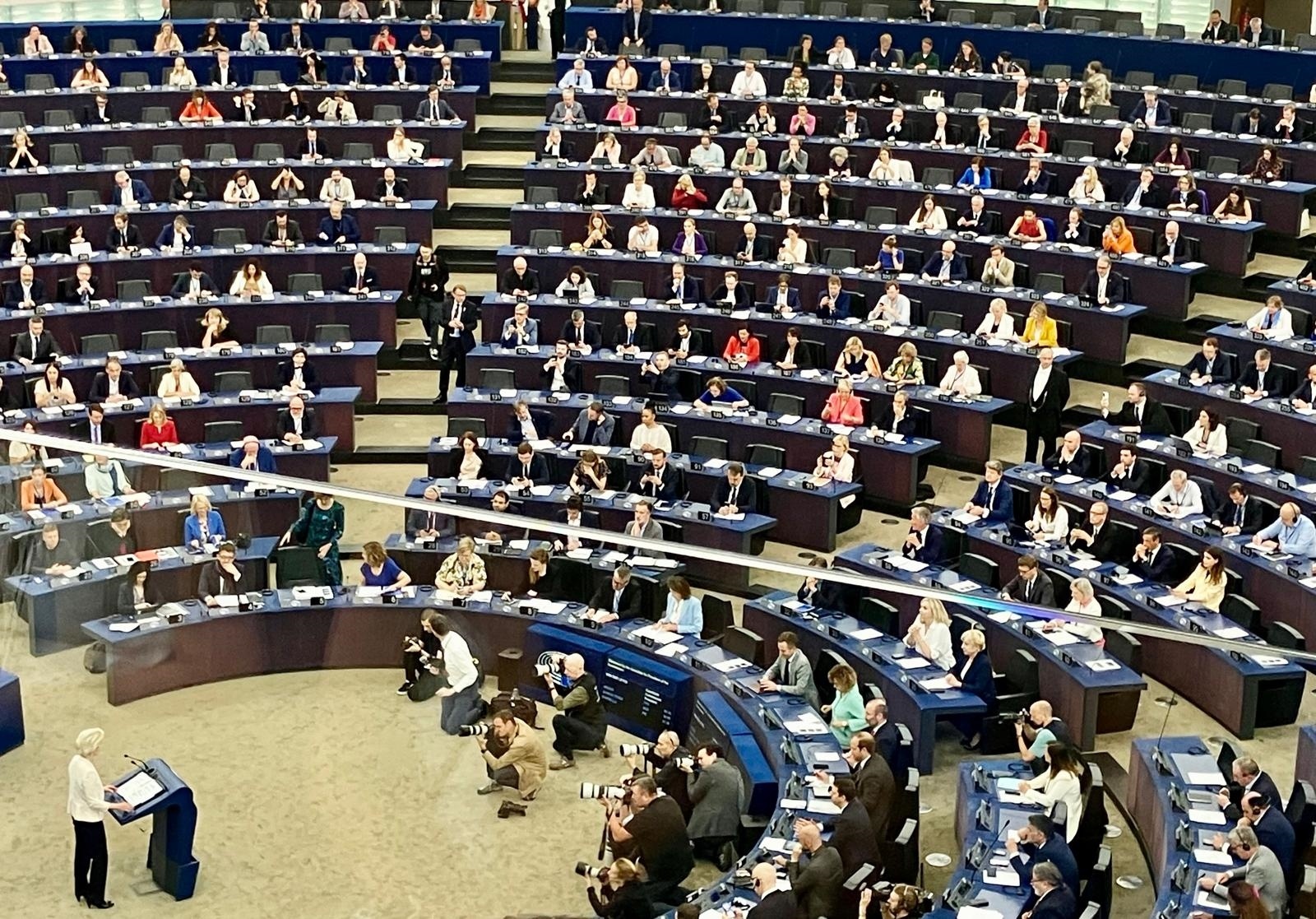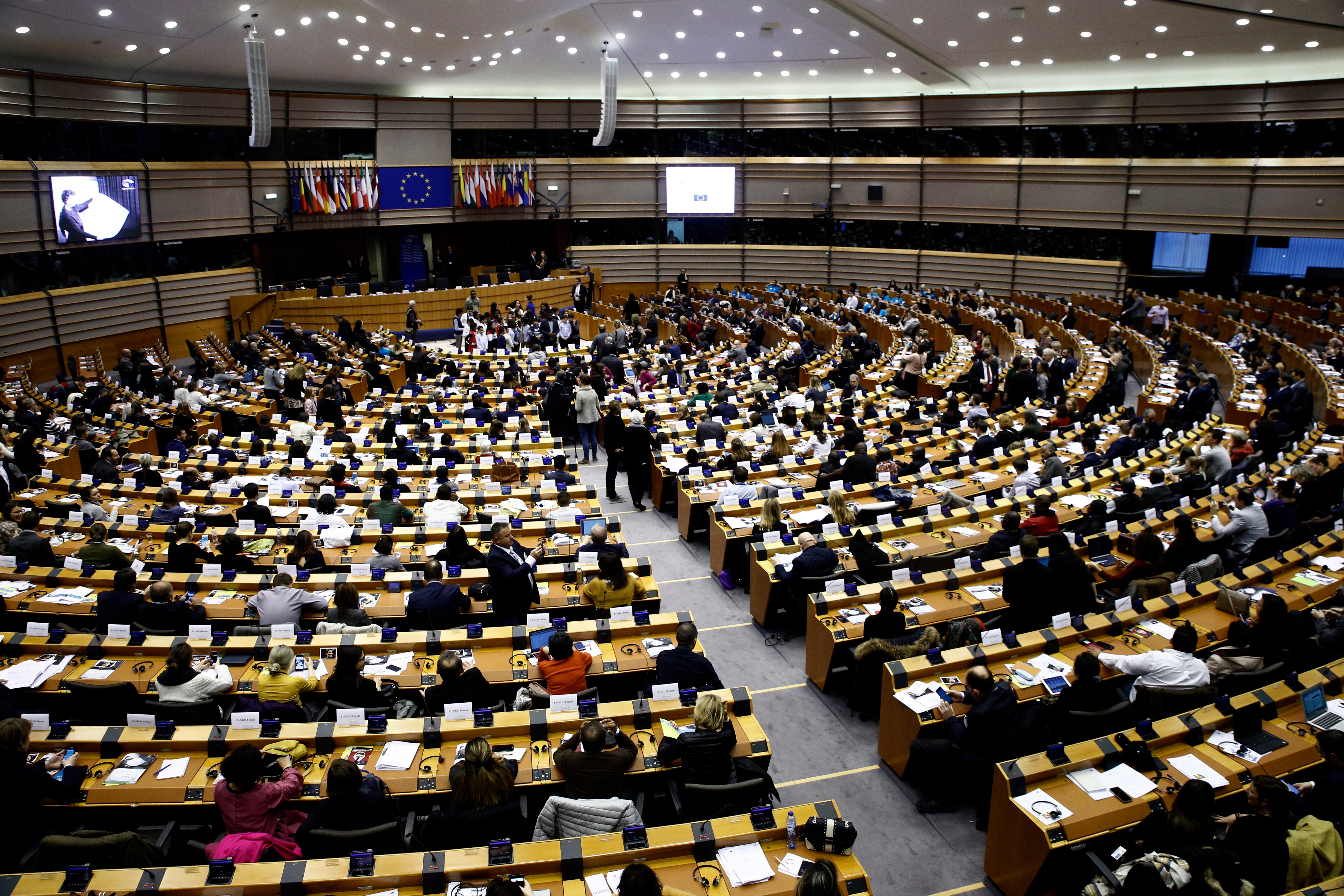Dr Aura Salla, elected in June 2024 to her first mandate as a Member of the European Parliament (MEP), is no stranger to EU policy, having worked for many years in the European Commission and for Meta, as the company’s head of EU affairs. She was also elected to the Finnish Parliament in 2023. Since taking up her seat in the European Parliament in July 2024, MEP Salla has advocated stronger EU support for Ukraine and a steady commitment to both the green transition and a more capable and competitive EU — in particular vis-à-vis China and in light of a second Trump administration.
I spoke recently with MEP Salla (whom I will refer to here as Aura) about what she sees as the EU’s major challenges for the new mandate, in particular regarding technology and global competition. Here follows a brief summary of our conversation.
Conversation with MEP Aura Salla
Written by Nathan Shepura on 04 Dec 2024
A conversation with Kai Zenner
Written by Nathan Shepura on 04 Sep 2024
I sat down for an hour-and-a-half in early August with Kai Zenner, longtime policy advisor to MEP Axel Voss. Brussels had emptied for the summer, and we sported shorts and t-shirts at an outdoor café in a quiet Place du Luxembourg. We talked about his background in EU digital policy, and in particular about the future of AI, in Europe and beyond. A recurring theme was the EU’s need to think globally and strategically — rather than along nationalistic or ideological lines — in order to compete and stay relevant. Here’s a summary of our conversation.
Mastering Europe's digital infrastructure needs: the future of European telecoms legislation
Written by Shane Cumberton on 28 Aug 2024
In this blog, we look at the future of European telecoms legislation, including the possibilities for a Digital Networks Act during the 2024-2029 mandate.
Will Breton be back?
Written by Igor Ramage on 26 Jul 2024
In this blog, we investigate what role current French Commissioner for Internal Market Thierry Breton might play in the upcoming European Commission.
European Parliament gets to work
Written by Nathan Shepura on 23 Jul 2024
European Commission President Ursula von der Leyen has won a second five-year term. Her focus will be competitiveness, security and sustainability — defined less by green ideology than a push for clean industrialisation. With the European Parliament’s committees now formed, work will start in the autumn: to vet commissioners-designate, and vie for political control of the new programme. In this blog, we explore the key committees and committee members for the tech sector.
Commission President candidates clash in "Spitzenkandidaten" debate
Written by Emma Vivian on 28 May 2024
In advance of the European Parliament elections between 6 and 9 June, the candidates from five of Europe's major political groupings debated one another across a wide range of issues, including the economy, the climate and the environment, and technology policy on 23 May 2024. This briefing provides a summary of the key points each candidate made during the debate.
TikTok Lite sparks EU concerns: A deep dive into digital addiction
Written by Emma Vivian on 20 May 2024
In the fast-paced world of social media, concerns about digital addiction are taking centre stage once again, with TikTok and Meta at the forefront of scrutiny.
Trilogue negotiations in the EU
Written by Emma Vivian on 18 Mar 2024
Three key EU institutions - the European Commission, the European Parliament, and the Council of the European Union - walk into a room. It sounds like the start of a bad joke, but trust us, it's anything but! They're there to work through laws, policies, and regulations that impact the lives of over 500 million Europeans. In this blog, we're going to lift the curtain on trilogue negotiations and shed light on why this resolution is useful for the swift functioning of EU policy making.
Strategic Security in the Digital Age: The EU’s Deep Dive into Critical Technologies
Written by Inline Policy on 27 Oct 2023
The European Union’s economic framework has for a long time been underpinned by advances in technology. Yet, in our rapidly evolving digital era, innovation may in some cases pose a threat to economic security. The European Commission has therefore announced that it will undertake in-depth risk assessments across a number of critical technologies. While this initiative pivots on reducing tech vulnerabilities, it also encompasses geopolitics, strategic partnerships, and safeguarding the EU’s economic interests.
What is the EU doing to regulate artificial intelligence?
Written by Shane Cumberton on 07 Aug 2023
In this blog, we look at the steps the European Union is taking to regulate artificial intelligence.
Say "green" only if you mean it!
Written by Emma Vivian on 01 Jun 2023
Are consumers being deceived by misleading environmental and sustainability claims about products and services? "Greenwashing" is getting increasing attention from EU policymakers. What is the European Union doing to combat "greenwashing" by companies? How does this impact businesses and what should companies expect?
EU short-term rentals regulation: highlights from Inline’s panel
Written by Inline Policy on 26 Apr 2023
This blog is based on Inline’s panel discussion “EU short-term rentals regulation: where should compromise between the EU institutions lie?” which took place in April 2023. The event brought together Ivars Ijabs MEP, Shadow Rapporteur for the STR Regulation in the European Parliament’s Internal Market and Consumer Protection - IMCO Committee; Inge Janssen, Director Public Affairs, EMEA at Booking.com and Chair of EU travel tech; and Amaryllis Verhoeven, Head of the Digital Transformation of Industry Unit at DG GROW, European Commission. You can find a recording of the event here.
How will the Ecodesign for Sustainable Products Regulation affect your business?
Written by Emma Vivian on 09 Feb 2023
The Ecodesign for Sustainable Products Regulation will establish rules on the production of goods that are sold in the EU market. These rules will cover the entire life cycle of a product, from its design to its recycling. Companies which build tech devices and online platforms which sell those devices to consumers will have new obligations.
Short-term rental regulation could lead to fragmentation and legal uncertainty for platforms
Written by Inline Policy on 31 Jan 2023
On 7 November 2022, the European Commission published a proposal for a Regulation on data collection and sharing relating to short-term rentals. The proposed Regulation aims to establish a framework to share data between online platforms, hosts and public authorities. This blog analyses the two most pertinent parts of the proposed Regulation; it identifies the aspects that may cause friction; and it suggests how this friction could be addressed by policymakers.
The Swedish Presidency’s Programme – for a greener, safer, freer Europe
Written by Inline Policy on 20 Jan 2023
Sweden assumed the Presidency of the Council of the EU on 1 January and presented its policy programme on Tuesday 17 January to the European Parliament. The programme focuses on competitiveness, security, rule of law and sustainability. In this article, we examine the digital and sustainable priorities outlined in the programme. The Swedish Presidency is expected to drive progress in areas such as cyber security, data sharing, digital identity, and sustainability.
 Insights from Inline Policy listing page
Insights from Inline Policy listing page













.jpg)




